THE ART OF
PHILOSOPHY
PETER SLOTERDIJK
TRANSLATED BY KAREN MARGOLIS
THE ART OF
PHILOSOPHY
WISDOM AS A PRACTICE
COLUMBIA UNIVERSITY PRESS NEW YORK
NEW YORK
COLUMBIA UNIVERSITY PRESS
Publishers Since 1893
New York Chichester, West Sussex
cup.columbia.edu
Copyright Suhrkamp Verlag Berlin 2010
English translation copyright 2012 Columbia University Press
All rights reserved
E-ISBN 978-0-231-53040-8
Library of Congress Cataloging-in-Publication Data Sloterdijk, Peter, 1947
[Scheintod im Denken. English]
The art of philosophy : wisdom as a practice / Peter Sloterdijk ; translated by Karen Margolis
p. cm.
Translation of: Scheintod im Denken / Peter Sloterdijk.
Berlin : Suhrkamp, 2010.146 p. ; 18 cm.
Includes bibliographical references and index.
ISBN 978-0-231-15870-1 (cloth : alk. paper)
ISBN 978-0-231-15871-8 (pbk. : alk. paper)ISBN 978-0-231-53040-8 (ebook)
1. Philosophy and science. I. Title
B67.S56613 2012
100dc23 2012001986
A Columbia University Press E-book.
CUP would be pleased to hear about your reading experience with this e-book at .
Cover Image: Gallery Stock/ Justin Fantl
References to Internet Web sites (URLs) were accurate at the time of writing. Neither the author nor Columbia University Press is responsible for URLs that may have expired or changed since the manuscript was prepared.
For reason is the god in us [some poets say] and Mortal life contains a portion of some god. We ought, therefore, either to pursue philosophy or to say farewell to life and depart hence.
ARISTOTLE, quoted in Ingemar Dring, Aristotles Protrepticus: An Attempt at Reconstruction
From both, however, from those who have returned from a state of suspended animation and from Moses, who returned, one can learn a great deal, but the decisive thing cannot be discovered from them, for they have not discovered [it]. If they had, they would not have come back at all.
FRANZ KAFKA, On Suspended Animation
CONTENTS
,
:
:
The original title of this book is Scheintod im Denken (Suspended Animation in Thought). Inspired by Kafka, it refers to the experience of near-death and the role of mental absence and neutral observation in the history of philosophy. The title of the English edition, The Art of Philosophy: Wisdom as a Practice, reflects the authors contribution to the present debate on the conditions of scholarship. He argues that, analogous to training for athletic achievement, scholars can actively engage in academic science as a noble exercise involving constant practice to improve knowledge and attain wisdom.
Karen Margolis
Berlin, Germany
The Greek philosopher Epicurus is reputed to have said that a person doing public speaking should bear in mind that a short speech amounts to the same as a long one. Sometimes I quote this remark at the beginning of a lecture to explain to the audience, which is usually slightly alarmed, that on this occasion it must be prepared for the long version that can replace the short one without losing anything. This is the case today. To give you a glimpse of what to expect in the coming hour, I would like to do what rhapsodists of bygone epochs are said to have done on occasion before they began their recitation. As far as possible, I shall tell you in advance what to expect, point by point, and will let you know what you are going to hear in as much detail as current plans permit. This will relieve unnecessary tension from the start and, knowing the present lecturers intentions with regard to the beginning, middle, and end, you will be free to follow his performance in perfect serenity.
I have subdivided my ideas into four sections, which shows, by the way, that I am not addressing you as a member of the theological fraternity. Theologians, as you know, arrange their thoughts preferably into three chapters because they like transposing themselves into Gods interiority, where the triad sets the tone, or sometimes into seven sections, if they are lifting their voice in imitation of the creator, or ten, if they are trying to match the author of the Decalogue tablets. This evening, however, I shall try my luck with the classical philosophical quaternity, which is based on the assumption that to tell the truth one must be able to count up to four.
I shall begin talking in general about academic science as the act of practicing anthropotechnology by outlining the subject in factual and historical terms. To do so, I will go back to two founding figures of philosophical thought: Edmund Husserl, who represents a modern rebirth of philosophy as a precise theory, and Socrates, whose appearance almost 2,500 years ago marked the beginning of the ancient quest for truth and wisdom, creating the phenomenon called philosophy that is still causing controversy today.
In the second part, staying on the propaedeutic level rather than tackling the subject directly, I shall discuss the multiple contingency of the person fit for epoch. This expression may seem obscure, but please be patient until I have the opportunity to explain it. For the moment, all I will say is that it involves a proposal for interpreting the phenomenon of bios theoretiks, the reflective life, in its many variations, a phenomenon that is so improbable in the evolutionary sense and so weighty in empirical terms. Its appearance has morally unsettled and cognitively advanced human communities for over two and a half millennia. This is reason enough to explore the conditions of the possibility of theoretical behavior.
In the third section, I shall go to the heart of todays topic and look at the formation or self-generation of the disinterested person. This requires discussing the theory of the epistemic suspended animation of savants, a theory known since antiquity. Given the time limitations, I shall do this briefly. My aim is to show why the idea that the thinking person has to be a kind of dead person on holiday is inseparable from the ancient European culture of rationality, particularly classical, Platonic-inspired philosophy. We will have the opportunity to examine Socratess notorious proposition that true lovers of wisdom are concerned with being as dead as possible in their lifetime; because if we are to believe idealism, only the dead enjoy the privilege of looking at the truths of the afterlife autoptically, as if face to face. Naturally, we do not mean the dead according to undertakers, but the philosophically dead who cast off their bodies and apparently become pure intellects or impersonal thinking souls. In this context, Socrates was suggesting that the condition of being dead that benefits theory can be learned in some way. Consequently, what we call method is not merely the scientific path to things but also the approach to a state of near-death, a cognition-enhancing condition. Plato was already aware of a precursor to death, though not the own death that Heidegger claimed for his theory of resolute authentic existence in Being and Time (1927). Instead, it is a run-up to the kind of death that creates anonymity, overpowering everything private and individual, the death that will pay for admittance to great theory afterward. Incidentally, this means that the once-lauded ars moriendi, the art of dying that the Stoics of antiquity and some mystical theologians of the late Middle Ages regarded as a supreme ethical discipline, does not imply that heroism became part of the sphere of contemplative life as much as we might assume. Rather, it is a key chapter of epistemology. Given the Platonic assumption that the eternal and immortal can only be recognized by their like, the quest for our own personal capacity to perceive this is of the utmost importance. Its success defines the possibility of true theory as the ancients understood it. If we failed to activate such a capacity for perceiving the everlasting in our lifetime, we would give up hope of valid, lasting knowledge. If we possess this kind of capacity, however, we should try to ensure that we use it as early as possible. This would be equivalent to trying to die in advance, not so as to be dead for longer but to reveal our latent capacity for immortality while remaining trapped in our mortal shell. We have to examine the metaphysical foundations of ancient European rationalism in the context of such peculiar, gloomy questions, and we will see that in this case the word metaphysical means something like epistemo-thanatological.
Next page
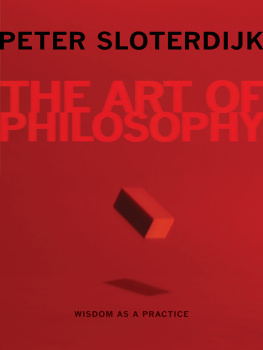


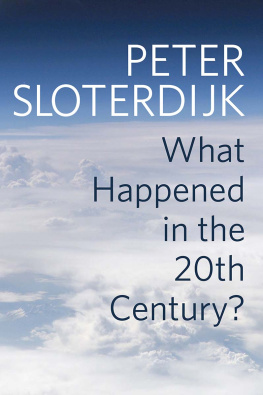
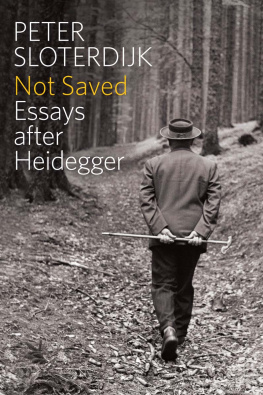
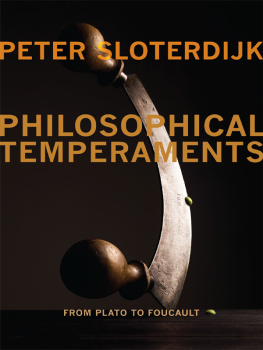

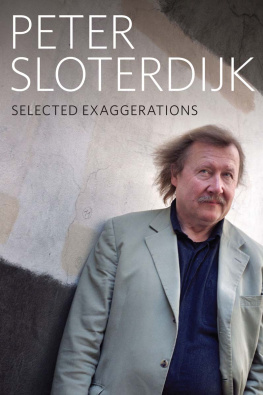
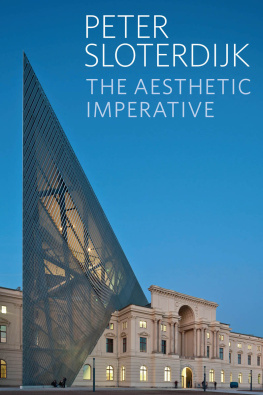
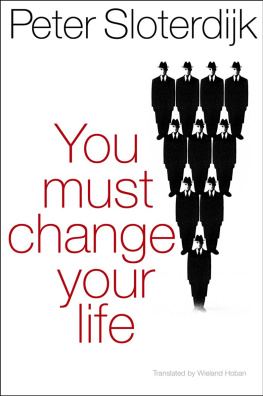
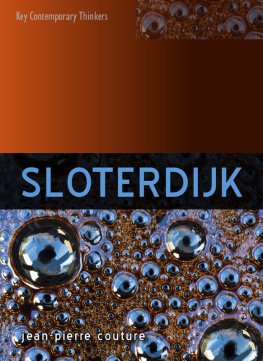
 NEW YORK
NEW YORK